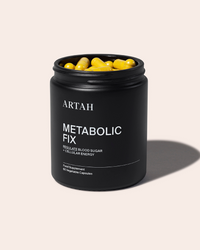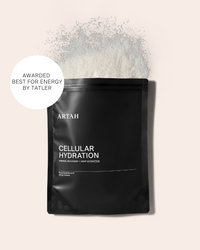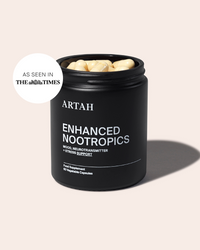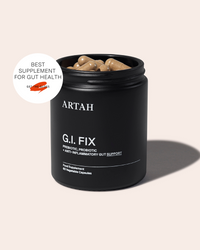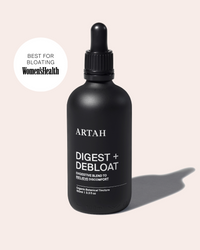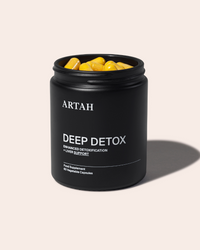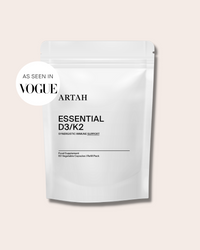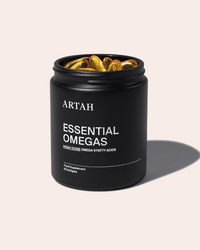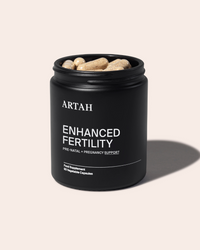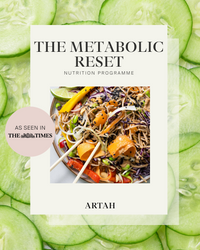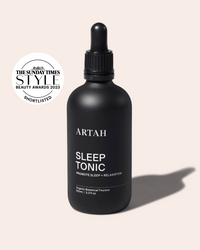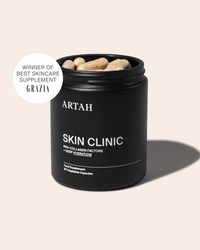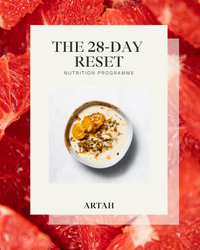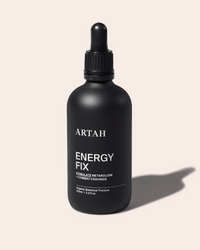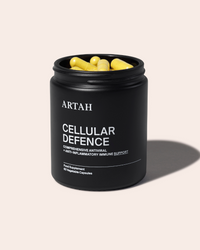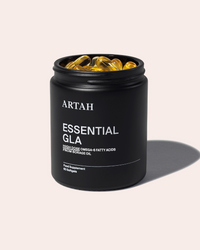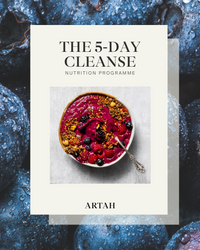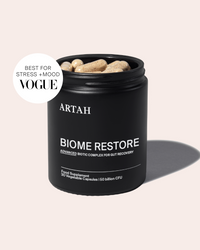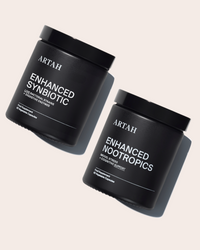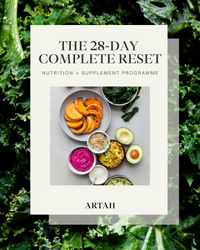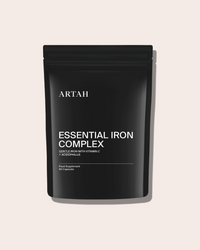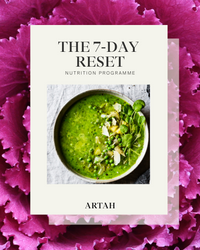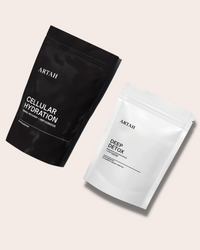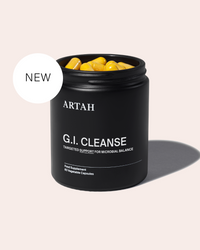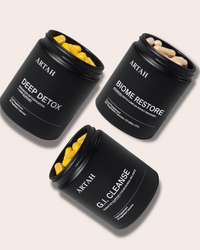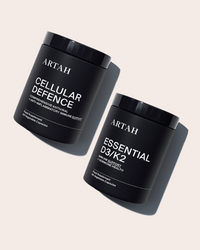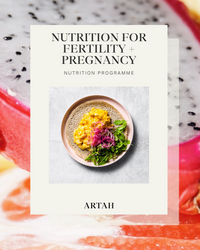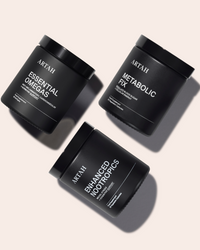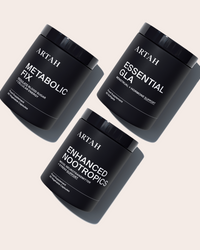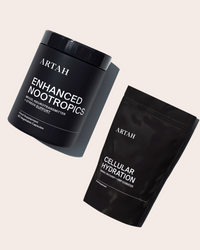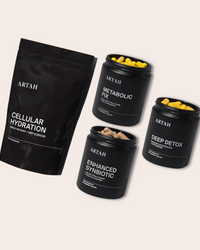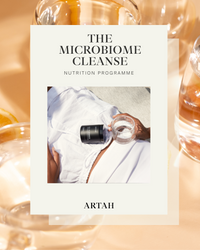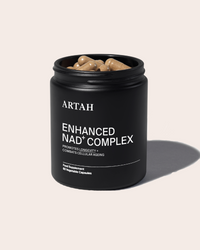I've Been a Nutritionist for Over 15 Years, Here's What I've Changed my Mind on.
I’ve been in the industry for over 15 years, and it’s been wild to see how much our understanding around health and nutrition has evolved. Within the last few decades, we’ve seen a monumental paradigm shift around previously accepted models of health; we now know that LDL isn’t king when it comes to cardiovascular disease, that the microbiome has a profound influence on our virtually all aspects of our metabolism, and that inflammation is a primary driver of depression.
With such an evolution in our understanding of human health and nutrition, I’m often asked what I've changed my mind about, so today I’m sharing my top three. The good news is that there are very few outright U-turns; because naturopathic medicine is based in a systems-approach to healing, the data supporting the interconnectedness of our health has only strengthened this approach. Here they are.
01 The importance of muscle mass.
If you know my background, you’ll know that I’ve always been an advocate of physical fitness and have championed exercise throughout my career. When it comes to predicators of all-cause mortality, VO2 Max is up there as the most important. (1) Our VO2 Max is basically a measure of how much oxygen we’re able to utilitse during exercise and is primarily a marker of cardiorespiratory fitness. This stat has always worked well for me because I have a deep love for cardio; if it’s the only type of exercise I could ever do again, I’d be happy. While I’ve always included strength training to balance my fitness regime, I’ve come full circle in my appreciation of muscle as tool for longevity and overall metabolic health. We lose muscle faster than you may expect; after the age of 30, muscle mass naturally drops by about 8% per decade until the age of 60, after which, the rate of decline is even faster. (2) Loss of muscle makes us vulnerable to injury and associated complications (for example, one in three adults over the age of 50 die within one year of hip fracture if they are unfit), but it also has greater implications to overall wellbeing. The most influential is probably its impact on metabolic health and blood sugar regulation. Muscles are a source of non-insulin dependent glucose uptake; in simple terms – they act like a sponge for sugar and bypass the need for our bodies to produce and release insulin. Not only does this decrease our total insulin load (critical for long term health), but it gives us more control over our blood glucose and a greater carbohydrate tolerance. In addition, cultivating muscle mass is like a form of health insurance; the healthier our muscle, the greater resilience we have. Studies have highlighted this when it comes to both diabetes risk and cancer survival. Not only are individuals with less muscle mass more likely to be insulin resistant (3), but there is also strong evidence suggesting the more muscle an individual has, the greater their survival rates are from certain cancers. (4) Time to get stronger.
02 Vitamin D
If there’s one vitamin that we’ve learned the most about in recent years, I’d say it’s Vitamin D3. When I started out in clinical practice, I didn’t prioritise Vitamin D3 for younger individuals. This wasn’t because I didn’t think it was important, but more because its classic use was focused on calcium homeostasis and bone health (and therefore the peri-menopausal/menopausal population), and we didn’t have a full understanding of how profound its effects were to systemic metabolic health. In the last decade, we’ve seen that it’s essential for everything from mood, hormone health, libido and metabolism, to immunity, Type 2 Diabetes, cancer, and Covid-19 outcomes (5). Vitamin D3 supplementation (with K2 for proper function) is now an absolute must for my kids, for myself, and is also something I recommend to everyone living in the UK. Despite what you may hear, no – you cannot get enough from food, unless you’re eating a healthy portion of wild salmon, organic pasture raised eggs, AND wild sardines every day. The quality of the food here does matter - wild salmon will have around 400IU of Vitamin D3, whereas farmed has 1/3 of that. One good quality egg (yolk) only delivers about 40IUs, and we’d need to eat around five tins of sardines each day to hit an optimal level of Vitamin D3. What about mushrooms? 100g is around 7IU – so you get my point. The RDA in the UK is 400IU, but there are questions as to whether this is enough. In Australia, for example, 600IU is recommended; in Canada, it’s 600IU or 800IU for elderly populations as a minimum (6), and we also know that this is the level we need to avoid frank deficiency, not optimise health. Individuals with chronic gut problems may also have more difficulty absorbing Vitamin D from food. So, whilst Vitamin D rich foods are a great part of a balanced diet, we still need a top up.
03 The Impact of Stress on our Health
Don’t get me wrong, I’ve never denied the fact that stress is bad for our health, but over the years our knowledge of the physiological adaptations that occur during chronic stress – and our levels of chronic stress itself – have increased drastically. There are many takeaways when it comes to the mechanistic effects of stress, but here are my main ones. Firstly, stress has a profound ability to change our gut microbiome; chronic stress can cause alterations in microbial composition, depleting beneficial species and promoting pathogenic species. (7) Even a single, two-hour stressor can induce significant changes in the relative pattern of our microbiome and when this is repeated daily, a fixed reduction in beneficial bacteria. (8) Secondly, it wasn’t until the last decade that we fully understood the ways in which stress increases inflammation, and what this means for our body. Increased inflammation can contribute to depression, anxiety, insulin resistance, and is one of the primary markers of age-related decline. Finally, stress reduces our resilience to infection. Studies have shown that when two groups are exposed to Rhinovirus, those suffering from stress have a weakened immune response and thus weaker resilience to the virus. (9) Because of this, the thing I’ve changed my mind about most is the importance of proactive stress management and recovery practices. From a nutrition POV, diet is key – ultra processed foods have been proven to increase inflammation, so have high intakes of sugar and alcohol – so good quality, nutrient-dense food is important. Our diet can also influence our resilience to infection; for example, in the same way that stress reduces viral resilience, foods like kiwi fruit and broccoli sprouts have been shown to improve viral resilience. From a supplement POV – taking proven adaptogens, like Ashwagandha KSM 66 and stress supporting vitamins/minerals like B Complex and Magnesium will help support health cortisol levels, blood sugar and more. From a lifestyle POV – it's all about finding your personal stress hack, whether this is yin yoga before bed, Epsom salt baths, meditation, acupuncture, self-massage or breathwork. It doesn’t really matter what you do, it matters that you do something that works for you.
SHOP THE ARTICLE






